For her leaving year cycle Catherine Heffernan attended Yeats College (in Waterford). Like so many, it was concentration levels that prompted this move, the Technical and Customer Support Manager with MSD Animal Health Livestock Intelligence tells Irish Country Living.
“I was just so easily distracted. They (Yeats) treat you like adults, teachers are called by their name, there’s no problem with what you wear, they only care about what you’re learning. And when I was put into that environment – with people that all wanted to learn – I was like, ‘I have to join the club,’ it was the culture of the school.”
“I remember ag science in secondary school, there were around 20 in the class and there were only three boys and the rest were girls. And then in University College Dublin (UCD), There were 23 in my class, it was completely reverted, with only four girls.
Catherine studied dairy business, only the second cohort of this course. “It was quite daunting because no one had yet come out the other end of it. But it was brilliant, I couldn’t recommend it enough. I went to New Zealand worked on an 800-cow dairy farm for six months during my PWE (professional work experience), then came back to do my time in Moorepark.”
This part of the programme gave Catherine access to a mentor farmer – Pat O’Brien in Dunmanway – whom she credits with giving her the “pure practicalities”. After graduation, and with a further trip to New Zealand – this time focused on calf rearing – under her belt, Catherine joined the Keenan graduate programme. Upon completion, she moved to Alltech and then to Lely. It was here where her interest in innovation, technology and animal health monitoring was really piqued.
Moving from Lely to MSD in January of this year was a smooth transition she says.
“The collars used on the Lely robots are predominantly the same as the Allflex collars. So with the technology, I had seen how they worked on the ground, I knew their ability and knew how it [the move to MSD] was going to be a very exciting opportunity.”
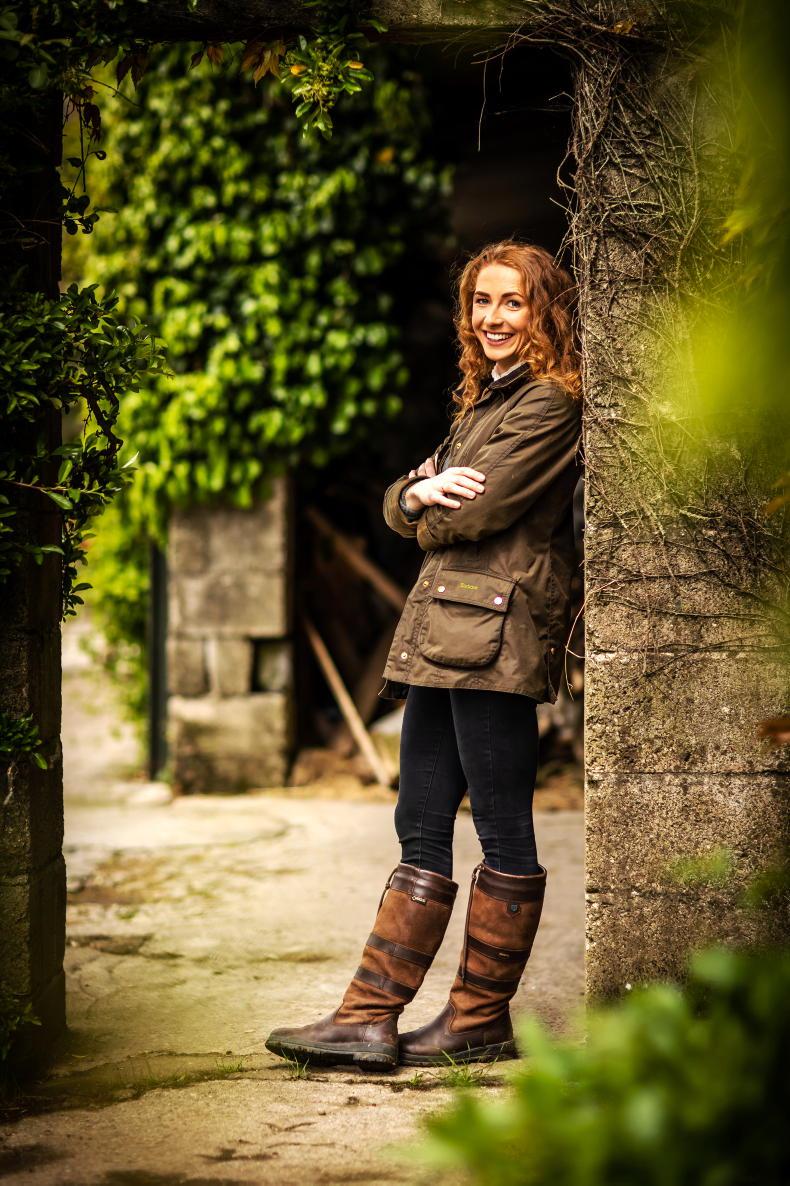
Catherine’s role is to provide technical support to customers and distributors. This means helping farmers utilise the heat, health and monitoring data collected. Understanding the data is vital she explains. “The system doesn’t tell you ‘This cow has mastitis,’ but it will tell you the animal is sick and how far she is out of her normal routine and gives her a score. How far away she is from the standard score will be an indicator of her health.”
Reflecting on the value of her ag degree, Catherine good humouredly attributes Tommy Boland’s nutrition [module] as “giving everyone a head start”.
But it is the contacts she made that she says are one of the biggest benefits from her time in UCD: “Having the degree is one thing, but the contacts you make; you can’t put a price on that. I often say I’d know someone in most companies and they’d always be there to give you a dig out.”

\ Philip Doyle
Career setback you later realised was an advantage?
I applied for a job internally and was not successful. In hindsight it was the best thing that ever happened. It allowed me to focus more on the role I was in and the future direction of my career. I’m a firm believer of what’s for you won’t pass you!
Company culture at MSD?
Brilliant. Despite starting a new job in the middle of COVID, it has not felt isolating or lonely.
Professional development?
Certainly from the product point of view there has been endless amounts of training, we’ve had huge amounts of support. In terms of personal development we’ve gotten training on presentation skills as it is so different having to do it online. Right from the start we have been involved in the greater discussions and meetings allowing us to touch base with all the ruminant areas, at the end of the day we are all the one team.
What would you do differently if you could go back in time?
I wouldn’t follow the crowd, I’d stand back and make up my own mind. Even from college – the craic of “Oh what modules are you doing... Oh, I’ll do the same”. You need to use your head and think: “What do I want to do?”
What advice would you give to someone looking to improve their career prospects?
Don’t undervalue yourself, you will rarely tick all the boxes of a job requirement. Put yourself out there and get networking! This can be hard in the midst of a pandemic, but get on webinars and reach out. If you’re not in you can’t win!
Professional associations?
I am a member of the ASA and am on the council. All my pastimes are farm related – all I do is calve cows.
Is there a quote that motivates you?
No one cares how much you know until you show how much you care. I stole that from my colleague Niall Brennan.
Who inspires you?
I always admired Dr Pierce Lyons, no matter how big his company went he always took it back to the basics and back to where it came from. He’d walk into a room and treat you no differently to anybody else. Just so humble.
Where do you see the industry going?
We are going to have to focus more on the individual animal performance. We’ll be able to get more out of our cows by focusing on health. By more I’m not talking about milk but the longevity of our cows keeping animals in the herd for longer.
What organisational challenges have you faced?
Being part of an acquired company during the Keenan/Alltech acquisition posed short term challenges with company cultures! Overall it was very successful and offered huge opportunities for career progression and the company’s success in the industry.
What’s next for your career?
Very happy in my role now, I’m very content. I know that over the last few years that customer support is the area I want to be in, I’m going to stay there and keep my feet on the ground.
Advice for others?
Put yourself out there never underestimate the value of networking. Treat everyone equally this industry is a very small place. Small keys open big doors!
Read more
Student blogs: farm trials and pedigree dairy herds
The place of boarding school education in modern Ireland
For her leaving year cycle Catherine Heffernan attended Yeats College (in Waterford). Like so many, it was concentration levels that prompted this move, the Technical and Customer Support Manager with MSD Animal Health Livestock Intelligence tells Irish Country Living.
“I was just so easily distracted. They (Yeats) treat you like adults, teachers are called by their name, there’s no problem with what you wear, they only care about what you’re learning. And when I was put into that environment – with people that all wanted to learn – I was like, ‘I have to join the club,’ it was the culture of the school.”
“I remember ag science in secondary school, there were around 20 in the class and there were only three boys and the rest were girls. And then in University College Dublin (UCD), There were 23 in my class, it was completely reverted, with only four girls.
Catherine studied dairy business, only the second cohort of this course. “It was quite daunting because no one had yet come out the other end of it. But it was brilliant, I couldn’t recommend it enough. I went to New Zealand worked on an 800-cow dairy farm for six months during my PWE (professional work experience), then came back to do my time in Moorepark.”
This part of the programme gave Catherine access to a mentor farmer – Pat O’Brien in Dunmanway – whom she credits with giving her the “pure practicalities”. After graduation, and with a further trip to New Zealand – this time focused on calf rearing – under her belt, Catherine joined the Keenan graduate programme. Upon completion, she moved to Alltech and then to Lely. It was here where her interest in innovation, technology and animal health monitoring was really piqued.
Moving from Lely to MSD in January of this year was a smooth transition she says.
“The collars used on the Lely robots are predominantly the same as the Allflex collars. So with the technology, I had seen how they worked on the ground, I knew their ability and knew how it [the move to MSD] was going to be a very exciting opportunity.”

Catherine’s role is to provide technical support to customers and distributors. This means helping farmers utilise the heat, health and monitoring data collected. Understanding the data is vital she explains. “The system doesn’t tell you ‘This cow has mastitis,’ but it will tell you the animal is sick and how far she is out of her normal routine and gives her a score. How far away she is from the standard score will be an indicator of her health.”
Reflecting on the value of her ag degree, Catherine good humouredly attributes Tommy Boland’s nutrition [module] as “giving everyone a head start”.
But it is the contacts she made that she says are one of the biggest benefits from her time in UCD: “Having the degree is one thing, but the contacts you make; you can’t put a price on that. I often say I’d know someone in most companies and they’d always be there to give you a dig out.”

\ Philip Doyle
Career setback you later realised was an advantage?
I applied for a job internally and was not successful. In hindsight it was the best thing that ever happened. It allowed me to focus more on the role I was in and the future direction of my career. I’m a firm believer of what’s for you won’t pass you!
Company culture at MSD?
Brilliant. Despite starting a new job in the middle of COVID, it has not felt isolating or lonely.
Professional development?
Certainly from the product point of view there has been endless amounts of training, we’ve had huge amounts of support. In terms of personal development we’ve gotten training on presentation skills as it is so different having to do it online. Right from the start we have been involved in the greater discussions and meetings allowing us to touch base with all the ruminant areas, at the end of the day we are all the one team.
What would you do differently if you could go back in time?
I wouldn’t follow the crowd, I’d stand back and make up my own mind. Even from college – the craic of “Oh what modules are you doing... Oh, I’ll do the same”. You need to use your head and think: “What do I want to do?”
What advice would you give to someone looking to improve their career prospects?
Don’t undervalue yourself, you will rarely tick all the boxes of a job requirement. Put yourself out there and get networking! This can be hard in the midst of a pandemic, but get on webinars and reach out. If you’re not in you can’t win!
Professional associations?
I am a member of the ASA and am on the council. All my pastimes are farm related – all I do is calve cows.
Is there a quote that motivates you?
No one cares how much you know until you show how much you care. I stole that from my colleague Niall Brennan.
Who inspires you?
I always admired Dr Pierce Lyons, no matter how big his company went he always took it back to the basics and back to where it came from. He’d walk into a room and treat you no differently to anybody else. Just so humble.
Where do you see the industry going?
We are going to have to focus more on the individual animal performance. We’ll be able to get more out of our cows by focusing on health. By more I’m not talking about milk but the longevity of our cows keeping animals in the herd for longer.
What organisational challenges have you faced?
Being part of an acquired company during the Keenan/Alltech acquisition posed short term challenges with company cultures! Overall it was very successful and offered huge opportunities for career progression and the company’s success in the industry.
What’s next for your career?
Very happy in my role now, I’m very content. I know that over the last few years that customer support is the area I want to be in, I’m going to stay there and keep my feet on the ground.
Advice for others?
Put yourself out there never underestimate the value of networking. Treat everyone equally this industry is a very small place. Small keys open big doors!
Read more
Student blogs: farm trials and pedigree dairy herds
The place of boarding school education in modern Ireland






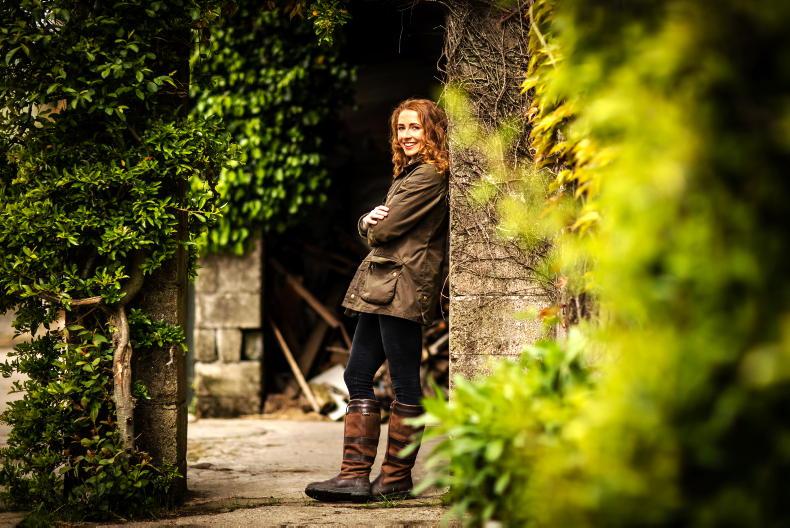
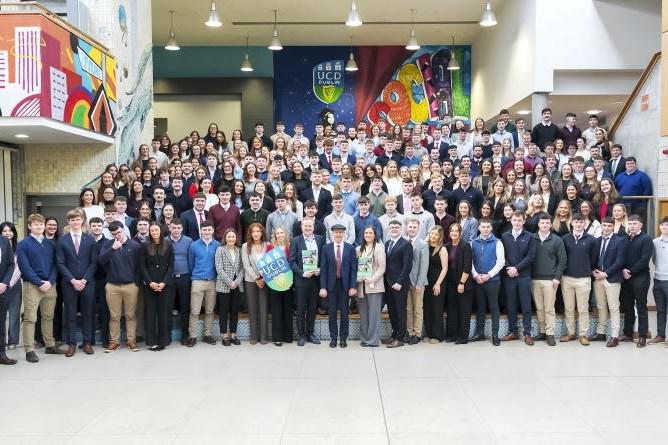
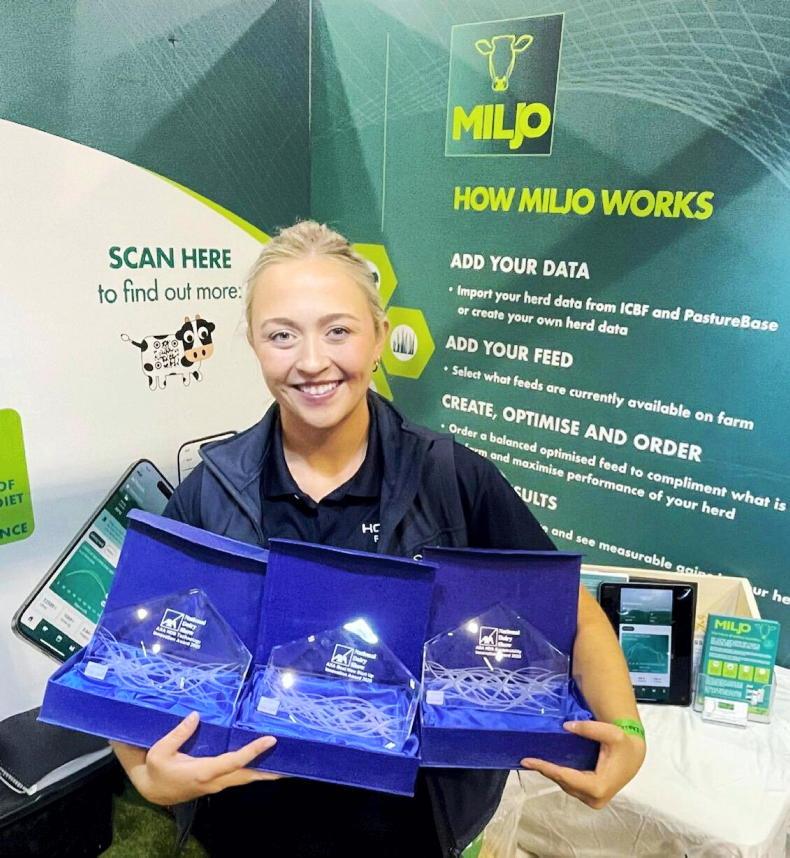
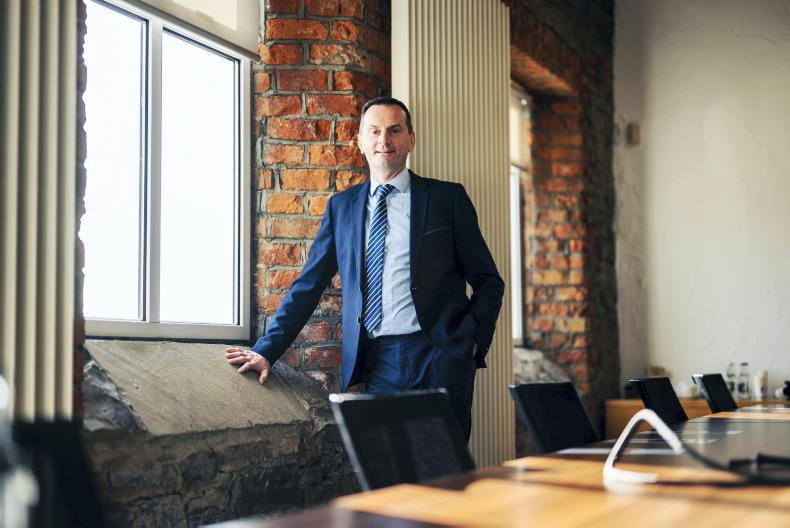
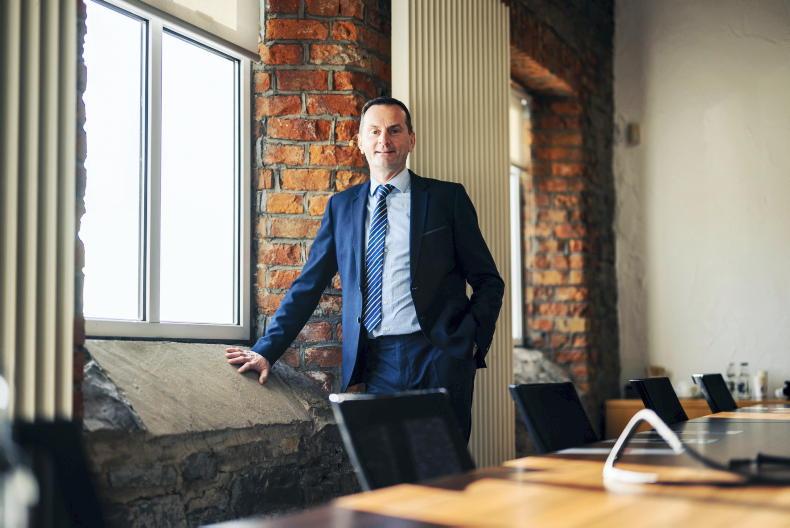
SHARING OPTIONS